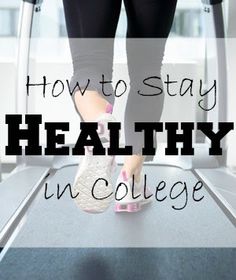10 Healthy Eating Tips for the Busy College Student
Ethio Clinic
11 May 2014
(Clarke.edu)_The average college student is often pressed for time, under a lot of stress, and eating on the go. You may find it difficult to avoid bad habits like skipping meals or frequently visiting fast food restaurants. But eating a healthy diet can help you feel better, cope with stress, and perform better in the classroom and on the athletic field. It really isn’t that hard to get started.
1. Eat a good breakfast – Studies show that skipping breakfast detracts from scholastic achievement. When there isn’t time to sit down and enjoy your morning meal, grab a bagel, piece of fruit, and some juice. Most of these items can be easily stored in your residence hall room.
2. If you must eat fast foods, choose wisely– Choose pizza with half the cheese, a regular size roast beef sandwich, baked potato, or green salad with reduced calorie dressing. Limit high fat offerings like French fries, fried chicken, or fish sandwiches and watch out for salad dressing!
3. Keep healthy snacks on hand – This way, if hunger strikes during a late night study session, you won’t be tempted by vending machine candy, chips, or ice cream. Possibilities include fresh or dried fruit, pretzels, unbuttered popcorn, rice cakes, or whole wheat crackers. If you have a refrigerator, consider raw vegetables with low-fat yogurt or cottage cheese dip.
4. Eat plenty of foods rich in calcium – People in their early twenties need to be building up stores of calcium in their bodies to prevent osteoporosis later in life. If you don’t like milk, try to include ample amounts of low-fat yogurt, low-fat cheese, and green leafy vegetables in your diet.
5. If you need to lose weight, do it sensibly– Starvation and/or diets that offer a quick fix usually backfire and are harmful. There is no truth to the theories that suggest eating foods in any particular combination will promote weight loss. The only safe way to lose weight, feel good while doing it, and keep it off, is to eat a balanced diet and exercise.
6. Limit your sugar intake – Sugar provides calories in your diet but few other nutrients, and it contributes significantly to tooth decay. Use it sparingly and consider sweetening coffee, tea, cereal, and fruit with diet sweeteners instead.
7. Visit the dining hall salad bar – The dining hall salad bar can be either an asset or a detriment to your diet depending on how you choose from it. Of course, leafy greens, raw vegetables, and fresh fruits are beneficial. But, if you choose a lot of creamy dressings, bacon bits, and mayonnaise-based salads, the calories and fat may equal or even exceed those of a burger and fries—so choose wisely!
8. Limit your alcohol intake – If you drink alcohol, keep in mind that it supplies calories but no nutritional value. A light beer, a glass of wine, or an ounce of liquor each has about 100 calories. There may also be health problems associated with drinking alcohol.
9. Drink lots of water – Your body needs at least eight glasses a day, and, if you exercise vigorously, you may need more. To remind yourself, carry a water bottle along to class and keep it handy during late night study sessions.
1o. Enjoy your food – Food is a lot more than nourishment for our bodies, so take the time to enjoy and savor it!

Leave a Reply
You must be logged in to post a comment.